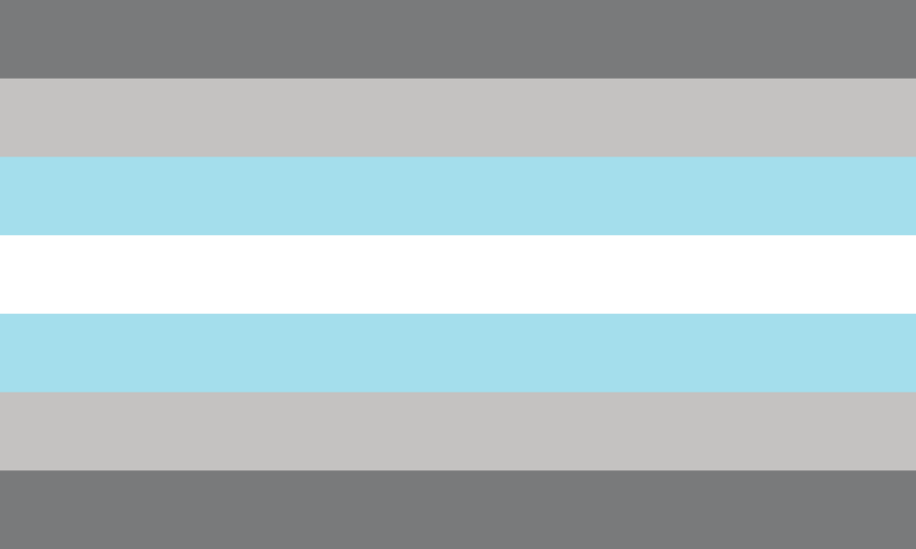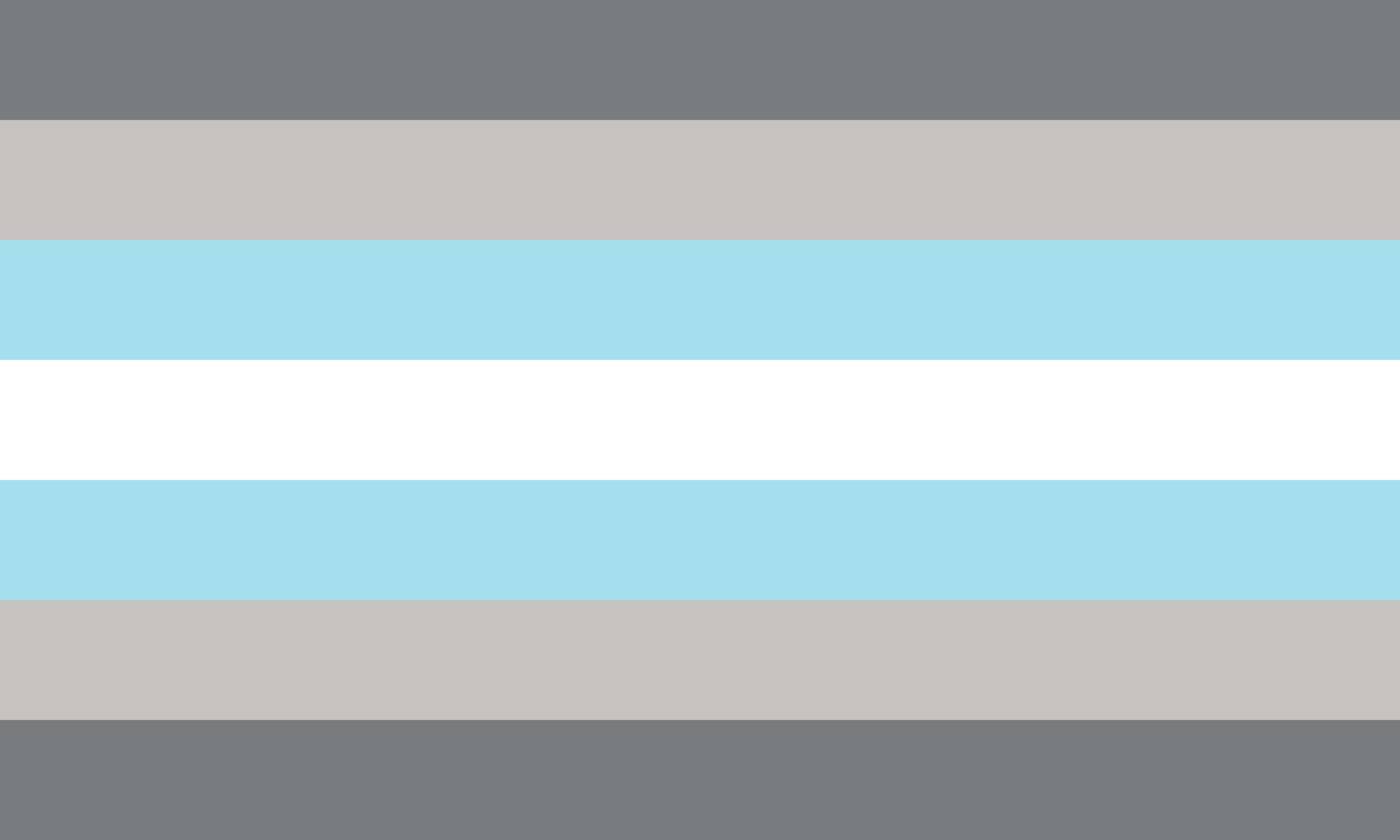As the gender spectrum continues to evolve, more and more labels are being used to identify oneself. One such label is demiboy, a gender identity that is increasingly gaining recognition and representation in the LGBTQ+ community.
Demiboys are often young people who don’t feel completely male or female, but somewhere in between. If you’re curious about what it means to be a demiboy, then you’ve come to the right place!
In this article, we’ll tackle what it means to be a demiboy and provide resources for those who may be questioning their gender identity.
Who is a demiboy?
A demiboy is someone whose gender identity is partially male and partially another gender. The word demiboy is made up of the prefix “demi-” meaning “half” or “partial”, and “boy” which refers to the masculine gender. The word demiboy and demigirl fall under the demigender umbrella which also falls under the nonbinary umbrella.
Regardless of what gender they were assigned at birth, demiboys feel connected in some way, whether that be slightly or majorly, to masculinity. A demiboys approach to masculinity can vary, they are essentially aligned with agender and masculine genders, but they might not identify equally with both.
For example, one demiboy might be non-binary and show more masculine traits and expression, but another demiboy might have been assigned the male gender at birth, does not feel a strong association to the gender, but also is not dysphoric enough to completely transition to another gender.
Are demiboys trans?
If you identify as a demiboy or non-binary individual, you may be wondering if you fall under the transgender umbrella. Well, the answer is… it’s up to you! Everyone experiences and expresses their gender identity differently.
It’s important to note that identifying as non-binary or demiboy can often be considered a form of transness, as it involves a departure from the traditional binary gender system. So if you feel like identifying as transgender speaks to your experience, that’s totally valid!
Related:
What Does It Mean to Be a Demigirl?
Are you a demigirl?
Where does the word “demiboy” come from?
The first ever usage of the word demiboy dates back to 2010 when an AVEN user by the name Bad Patient said, “…I said to myself that I can any word relate to me if I just stick a “demi-” in front of it. And then I realized that it might actually help me find a word for my gender identity. I’ve felt for some time that I may have too much of the masculine element in me to call myself agender and feel good about it — so maybe it would be a nice idea to call myself a demiguy. Demidude. Demibloke…” Later on Bad Patient made it clear that they weren’t being serious about that post, but it still propelled the use of the word.
In 2011 we saw both “demiboy” and “demigirl” being added to the Genderqueer Identities & Terminology page of the Genderqueerid blog. By 2014 the word was properly defined as we know it today on Tumblr.
The use of the word demiboy is still pretty uncommon and unfortunately not as well known. There is a lot of misunderstanding surrounding this gender identity and the usage of the word in popular media has been a helpful way to grow awareness for the meaning of demiboy.
Other ways to say demiboy
Because identity is personal and different people are comfortable using different terms there are a variety of ways to say the word demiboy, including:
- Demiguy
- Demiman
- Demimale
- Demidude
Over time language evolves and this creates new words derived from a multitude of historical nuances. Labels and terms can also carry connotations, bad or good, which is why one might identify more with one term over the other despite them meaning the same thing to someone else.
Is this identity for you?
It’s important to note that no one can define your gender identity or sexuality except yourself. With that being said, if you are confused, but you think you might identify with being a demiboy here are some things to reflect on:
Do you feel aligned with more than just one gender?
It is likely that if you feel connected to more than one gender you fall under the non-binary category. It’s important to learn about what it means to be non-binary and where you might fall on that spectrum, whether that’s a demiboy or something else.
Do you 100% identify with the gender you were assigned at birth?
If you don’t identify at all with the gender you were assigned at birth you may be transgender or non-binary. If you were assigned a male identity at birth and do not identify with this at all you are most likely not a demiboy. If your gender identity is male, but you still feel like you fall into the non-binary spectrum you are more likely a demiboy.
What is your relationship to masculinity? Do you feel partially or wholly connected to the male gender?
A demiboy has a masculine gender identity, but does not completely feel like a “man” or super “masculine.” if that sounds like you, you might be a demiboy.
Demiboys in the media
One of the best ways to understand this gender identity is to consume demiboy-influenced media whether that be reading a book about a demiboy or following a demiboy social media influencer on Instagram. Not only does this help one understand and learn more about the identity, but it can also serve as a community for those who might need the support.
Here are some popular examples of demiboys in the media to follow and keep up with:
- Kay Cairns: An Irish journalist and demiboy.
- Charley Condomine: This demigender character appears in School Spirit: An Unlikely Webseries.
- Felix from Felix Ever After: YA novel Felix Ever After features a demiboy character and is written by Kacen Callender who identifies as a demiboy.
- Syle from The Office Type: The soon-to-be-released dating simulation game The Office Type will feature a demiboy character.
Our culture page is a great place to look for more content related to LGBTQ+ identities and the incredible people who embody them.
The demiboy flag

The Demiboy flag takes many forms, but the most popular and well-known version was designed in 2015 by Tumblr user Transrant. The flag features 3 colors and 7 stripes. Although the creator did not exactly specify what the colors of the flag represent many demiboys have taken it upon themselves to add meaning which you can find below:
- Blue: represents manhood and masculinity
- White: Represents agender and non-binary identities
- Gray: Represents the gray areas of partial gender identities
Embracing gender diversity is critical
The LGBTQ+ community often deals with a lack of acceptance and understanding, so it’s crucial to embrace and uplift all individuals – including non-binary folks and demiboys!
Everyone should be seen and affirmed for who they truly are, no matter the way they present their gender. Being educated and open-minded is key to creating an inclusive society for all genders in the LGBTQ+ community.
Subscribe to the INTO newsletter to expand your understanding and awareness of our vibrant community
Don't forget to share:
This article includes links that may result in a small affiliate share for purchased products, which helps support independent LGBTQ+ media.
Help make sure LGBTQ+ stories are being told...
We can't rely on mainstream media to tell our stories. That's why we don't lock our articles behind a paywall. Will you support our mission with a contribution today?
Cancel anytime · Proudly LGBTQ+ owned and operated
Read More in Culture
The Latest on INTO
Subscribe to get a twice-weekly dose of queer news, updates, and insights from the INTO team.
in Your Inbox














